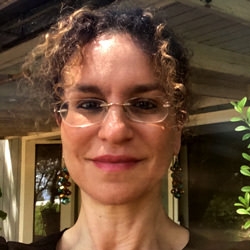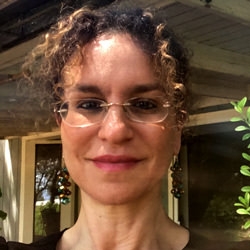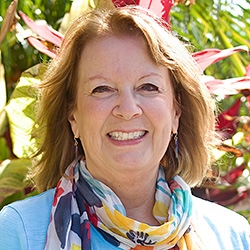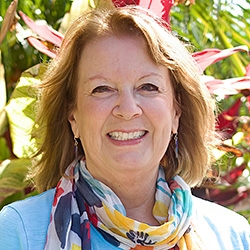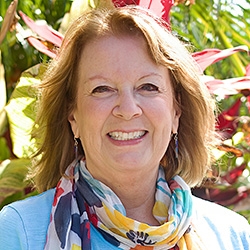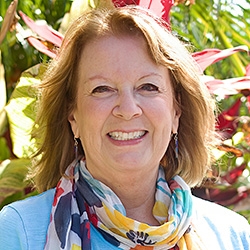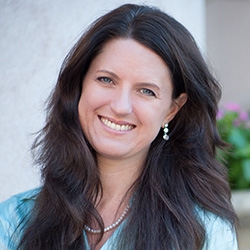
Search Results: men
-
Is it dangerous for large numbers of people to be absorbing disturbing news alone? Given the intensity of our times, making choices based on conscious awareness and discernment in relation to current events is essential for our ability to stay engaged, and to also wisely meet our collective challenges with agency and power. Here are five tips for how to help stay sane in relation to the news cycle.
-
In a "power with" consciousness you're aware of, and responsible for, your needs and values while considering and hearing others needs. Whereas regarding someone with earned authority, you trust her capacity and discernment is based on her experience and expertise. Read on for signs of when you are slipping into power under, power over, or power with, and how that fits with earned authority.
-
Join LaShelle Lowe-Chardé as she shares a story that beautifully illustrates how boundaries are akin to consciously directing our precious energy. She artfully expands upon this concept by highlighting that life-serving boundaries embody the wisdom of discernment.
-
How much money to pay? And how much money to ask for? The supply and demand logic basically say that we ask for the most that “the market can absorb” and pay “the least that we can get away with.” We can instead, we can engage in experiments that focus on connecting to and satisfying needs. We can also engage with our varying degrees of access to resources within the existing economy and consider how we want to make choices about resources, especially when we have access to power.
-
There are many layers of consciousness, knowledge, and skill that contribute to a successful negotiation. A successful negotiation is one where honor and connection lead to a way forward, and leads to a plan of action that considers and meets everyone's needs in that situation. Read on for three fundamental principles that help with successful needs-based negotiation.
-
Giving feedback can be a difficult task, sometimes we try to avoid getting to the point and instead end up spending a long time attempting to communicate. We find there are mostly two types of feedback. The first focuses on what is wrong with the person's behaviour and tends to feel more judgemental whereas the second is values-based feedback, focusing on the needs of the people involved.
-
When we have privilege, we can have access to resources resulting from legal or social norms related to membership in a group -- independent of any (in)action, awareness of the disparity, the potential benefits to us, or the costs to others. Unhelpful ways of engaging with privilege are: denial/invisibility, guilt/shame, defensiveness, and entitlement. Helpful ways of engaging are: owning privilege, learning about privilege, opening to feedback, and stewarding privilege for benefit of all. To be helpful we need to engage with necessary (rather than unnecessary) discomfort.
-
What can we do when someone tells us we're contributing to a pattern we're genuinely not seeing (nor experiencing)? What makes these patterns visible to some people but not others? This article addresses these things by talking about what to factor in when receiving feedback; handling feedback; responding relationally; paying attention to social location; considering impact; plus, broadening our perspective to bring in greater care and awareness.
-
What would the world be like if there was flow between all of us based on "mutual giving from the heart"? Using examples, this article offers models for us to follow that could inspire us to treat our NVC practice as one of compassionate giving and receiving.
-
Join Aya Caspi, a Certified NVC Trainer, as she delves into the difficult topic of parenting, childhood trauma, and social status. She discusses the generational impact of being labeled by society as "less than" or subservient. The wounds of childhood trauma can be healed so they no longer are a means of control by a dominant culture.
-
Aya Caspi, a Certified NVC Trainer discusses how the "story" we tell ourselves about human nature impacts our childhood and the roles we are taught to play in society.
-
In this Life Hack, we're going deeper into self-empathy with a simple guided reflection that you can work through. This will be followed by a short exercise with a fill-in sheet led by Gesine and is something you can come back to as you wish.
-
Distinguishing between needs and strategies to meet needs is crucial for solving conflict. For example, the need for peace can be met through various strategies beyond solitude or gratitude. Similarly, sex is a strategy. Sexual expression is the need behind it, and can be met in various ways to meet that need without having sex itself. Such flexibility can foster creativity and deeper connection, enhancing relationships.
-
How often do you find yourself stuck between two options? Do you go with option A or option B and what if it's a complicated decision that involves more than just a quick thought process? In this Life Hack we guide you through a process you can use when facing a difficult decision with a simple 5 step process, this meditation should leave you feeling more at peace and with more clarity on moving forward.
This meditation also brings in elements of brainstorming and ideation, so as well as reflecting on your needs, once the process is finished we hope you find some fresh ideas of ways to move forward.
-
Trainer Tip: Mary explains the NVC principle known as the "protective use of force."
-
Some things may seem to take longer at first, but end up making things easier and faster. Other things seem easier or faster in the short term, but end up taking more time in the long run. This applies to projects, group agreements about process, relationships, addressing conflicts, clearing up misunderstandings, damage control, etc. It can be faster to slow down, be more present, and take the time since we care about the outcome.
-
Trainer Tip: When we are authentic about who we are, and our preferences, we give everyone and ourselves a better opportunity to open up dialogue about how to meet our collective needs better. We simply express our truth, and in that way we value our own needs as much as those of others.
-
Trainer tip: If you are in a relationship (whether personal or work related) that you are not happy with, consider talking to the other person in an effort to connect about both your needs. Talking about it doesn’t guarantee that you will like the resolution, but not talking about it guarantees continued unhappiness. Read on for more.
-
Trainer tip: NVC consciousness recognizes interdependence. In this process each person is autonomous; everyone's needs matter; people have choice and responsibility for their actions; there's abundance, and a valuing of coming together. The dependence / independence paradigm assumes we either need someone else to be whole -- or we don’t need others at all. Commit to living autonomously. Notice where you struggle with this.
-
The purpose of boundaries is to prevent harm to yourself and others. You decide what you are available for and what you are not. Boundaries are a clear expression of limits that keep your heart open no matter what.










